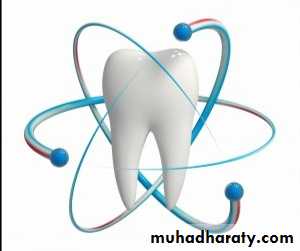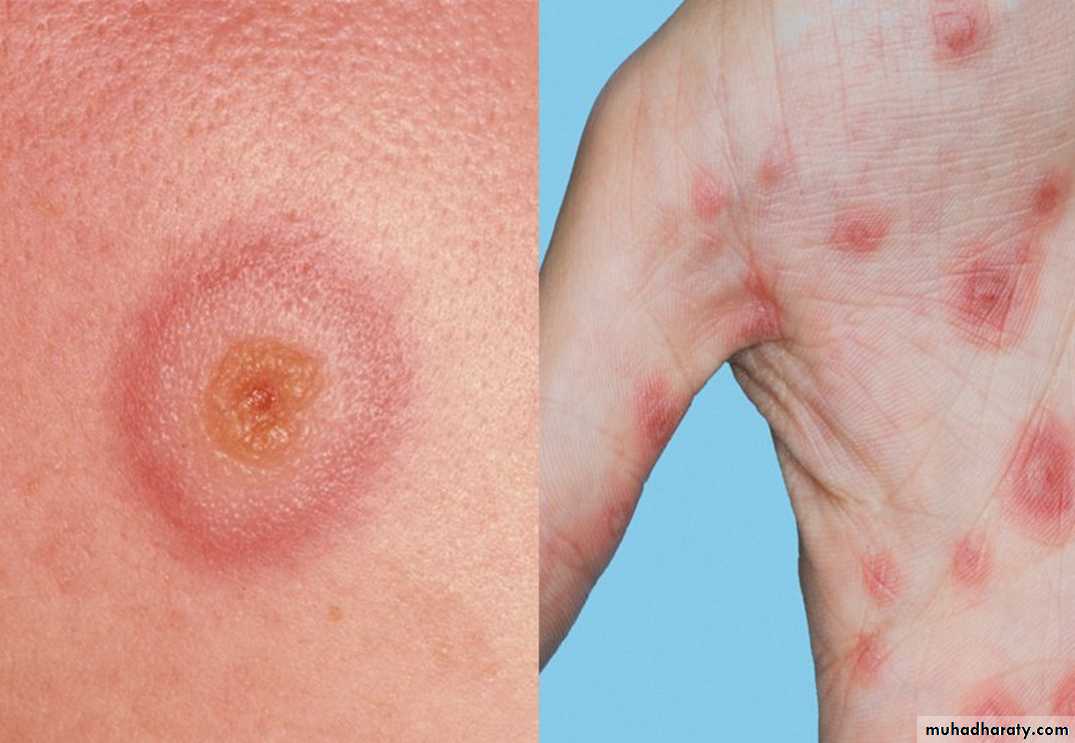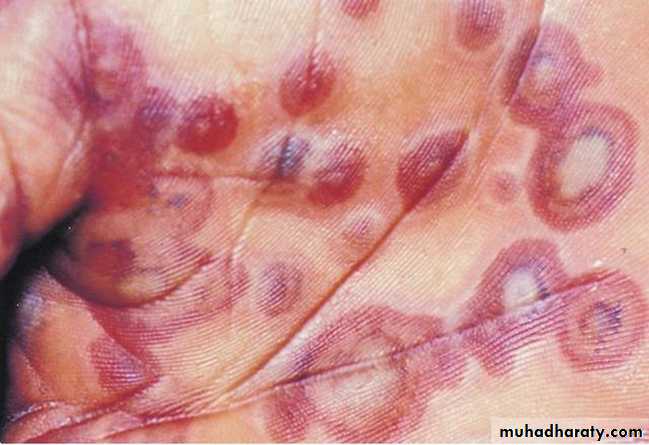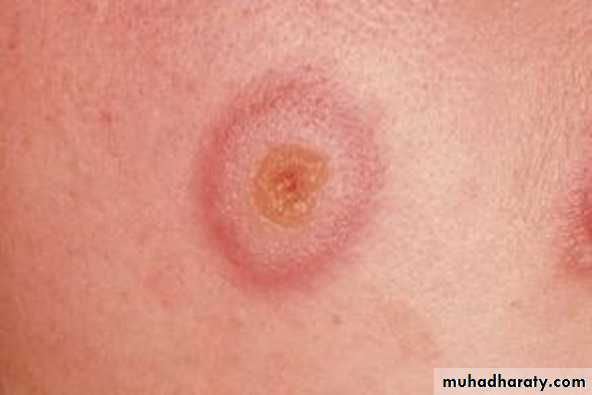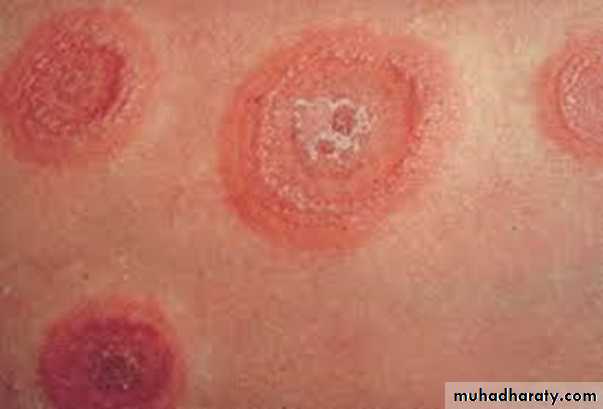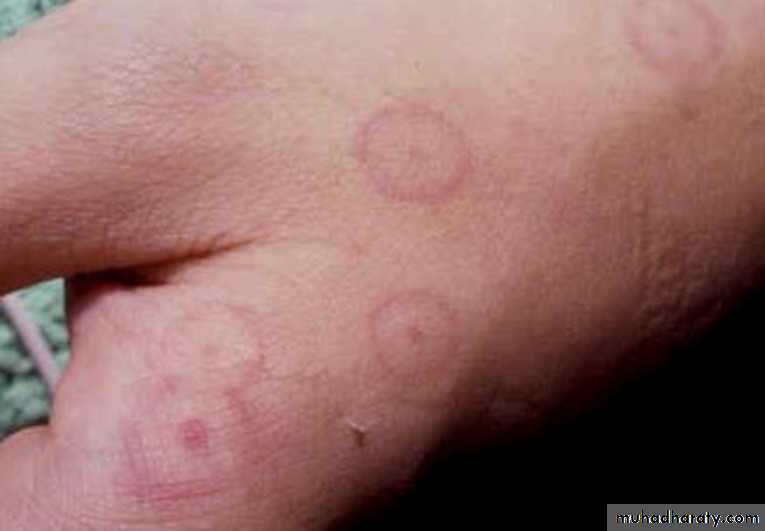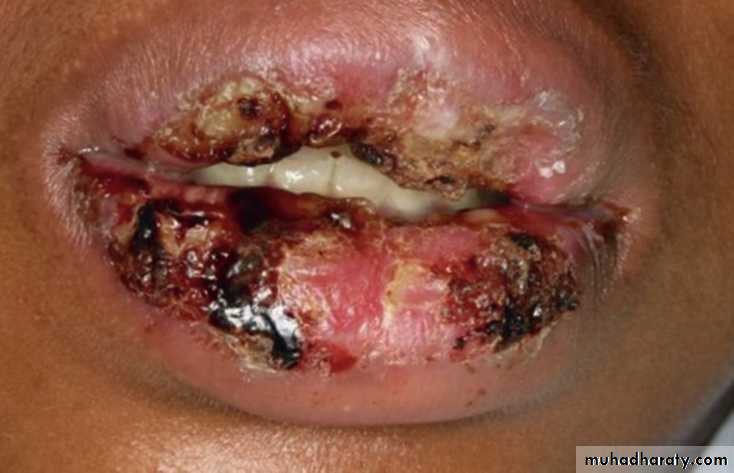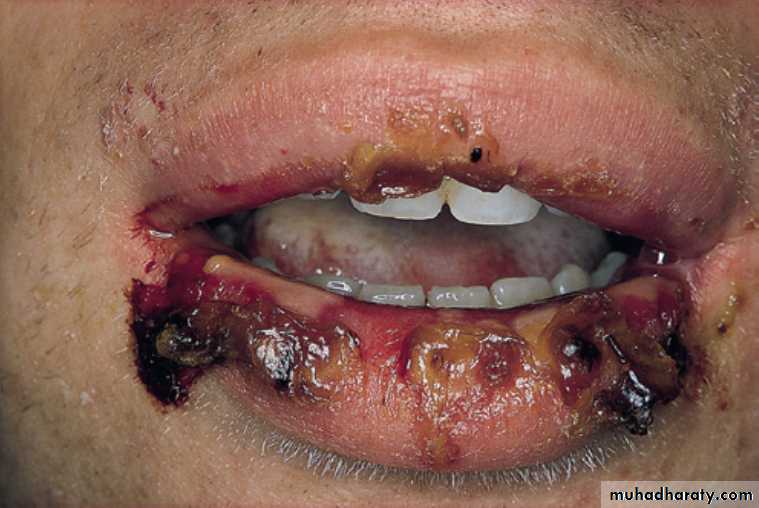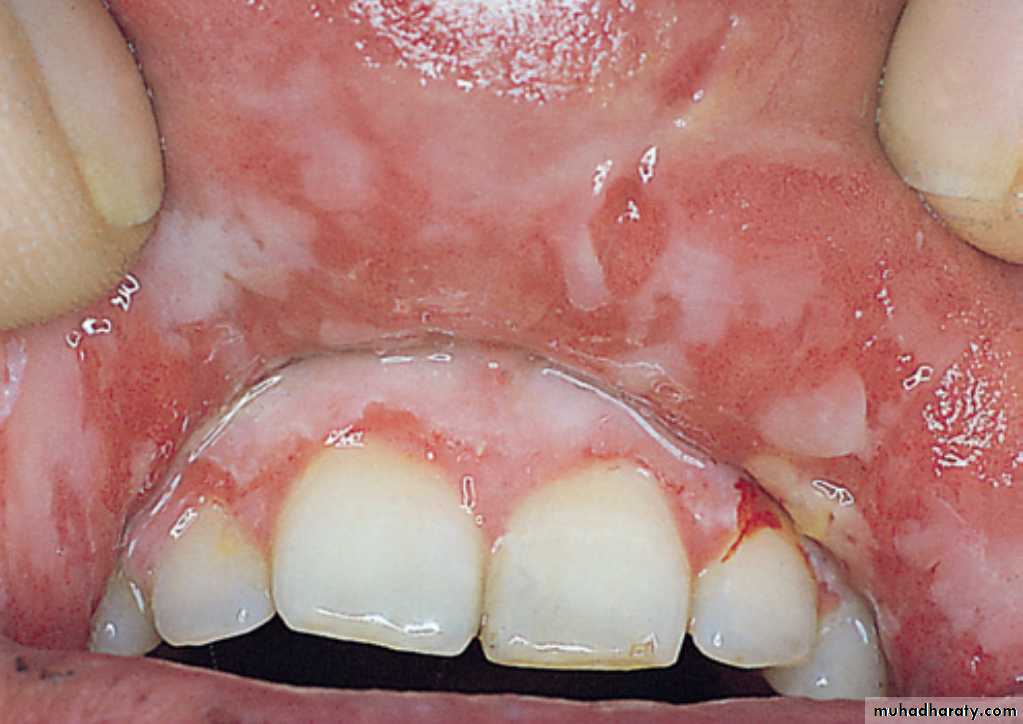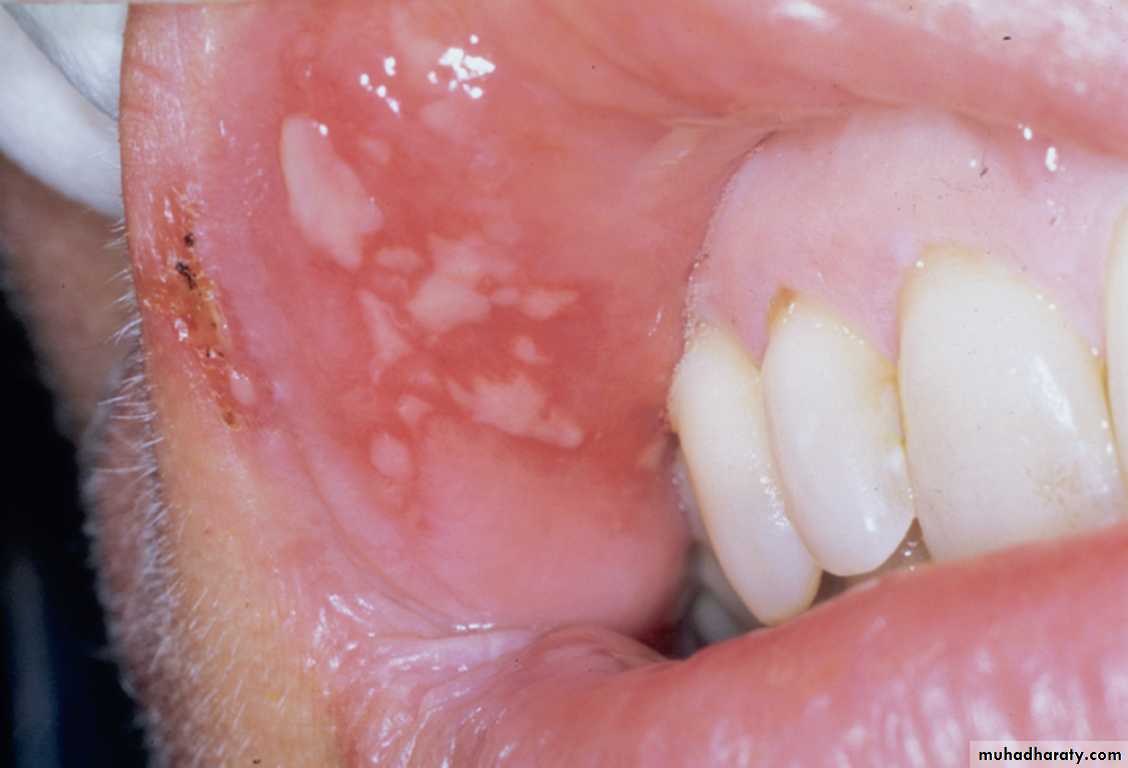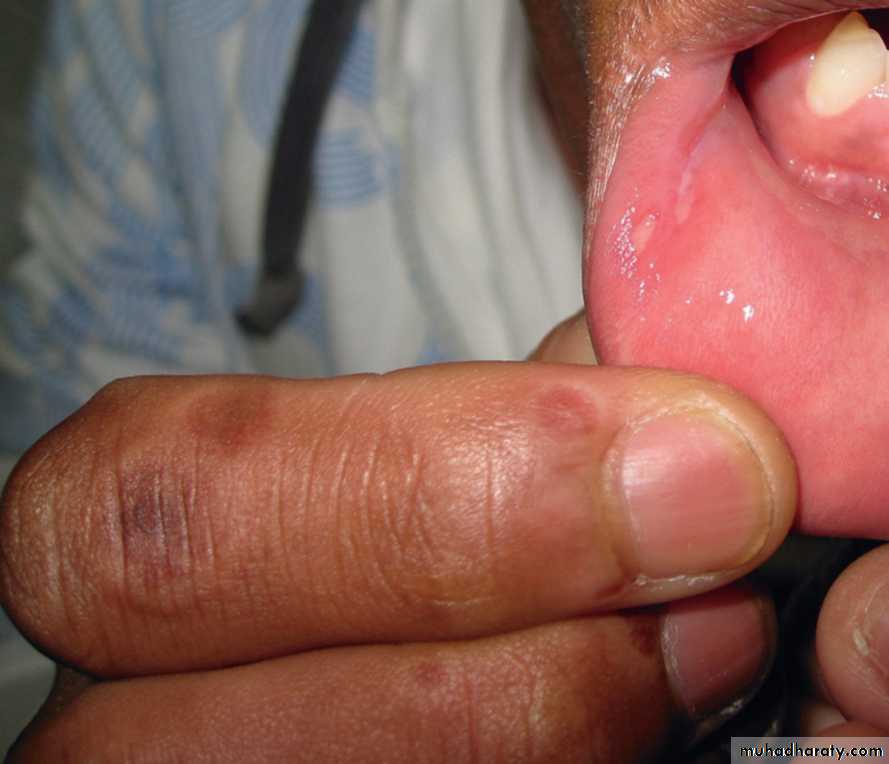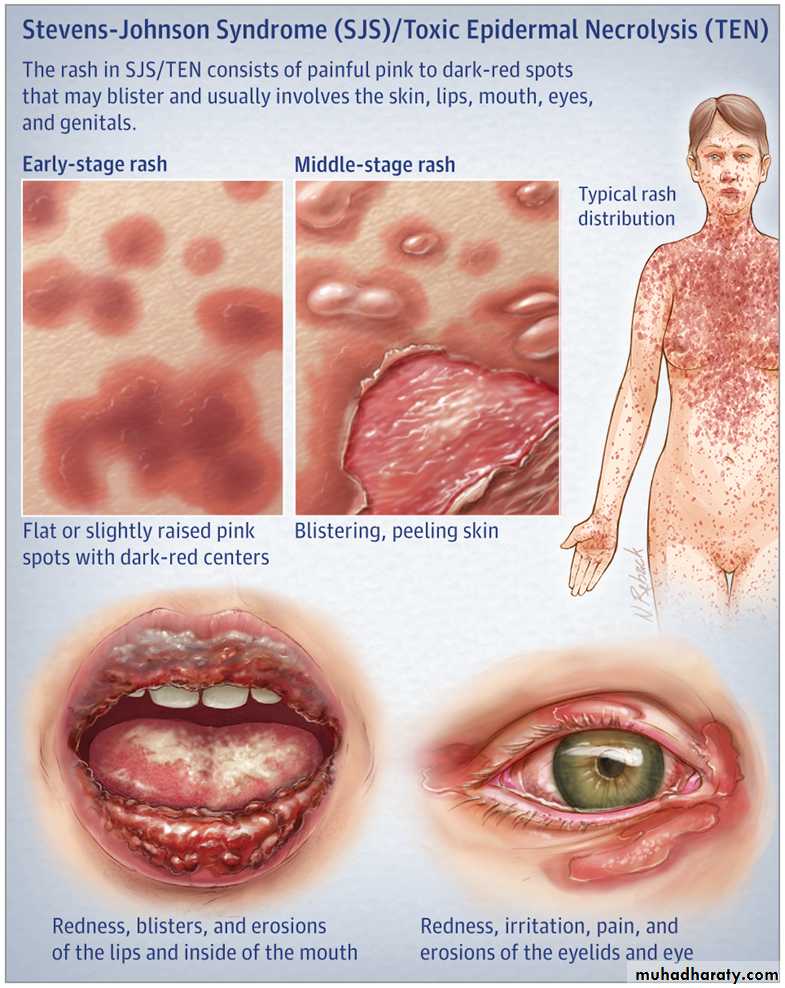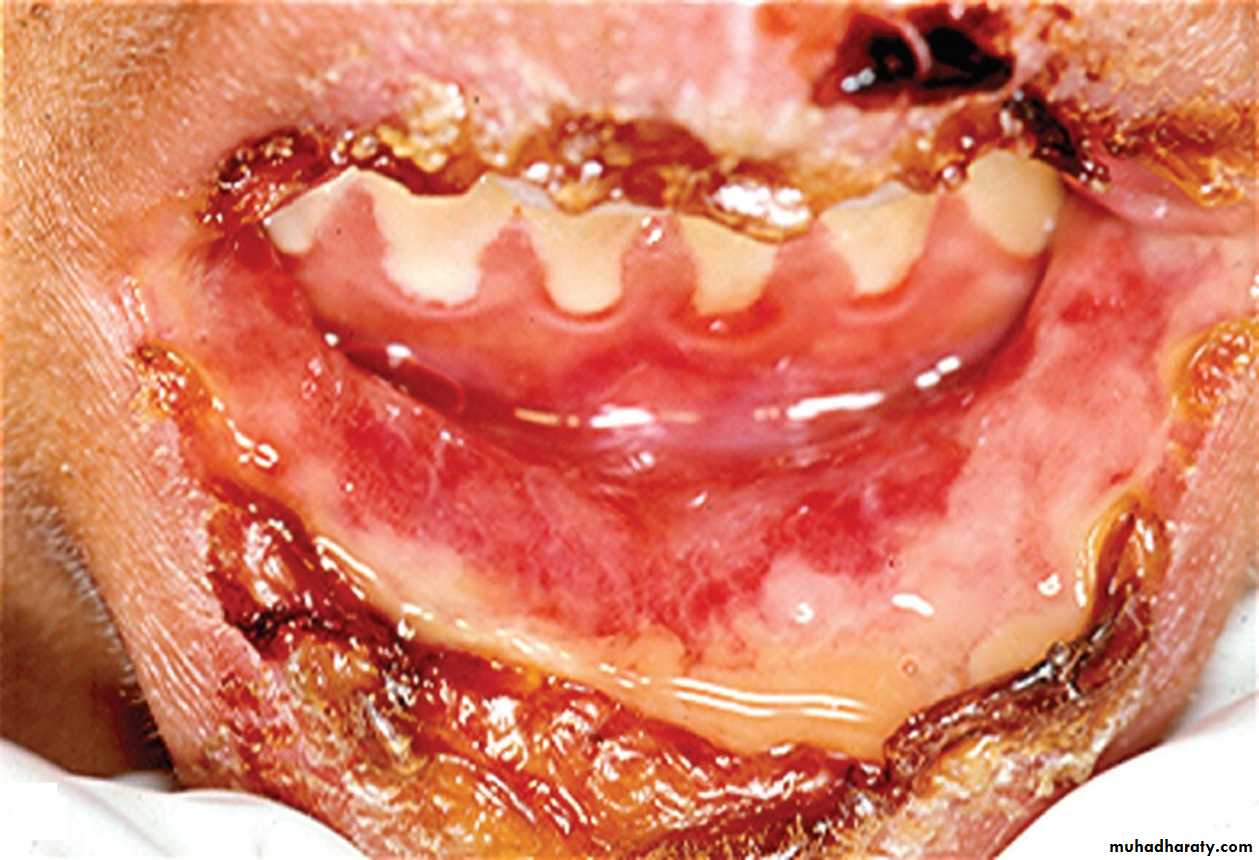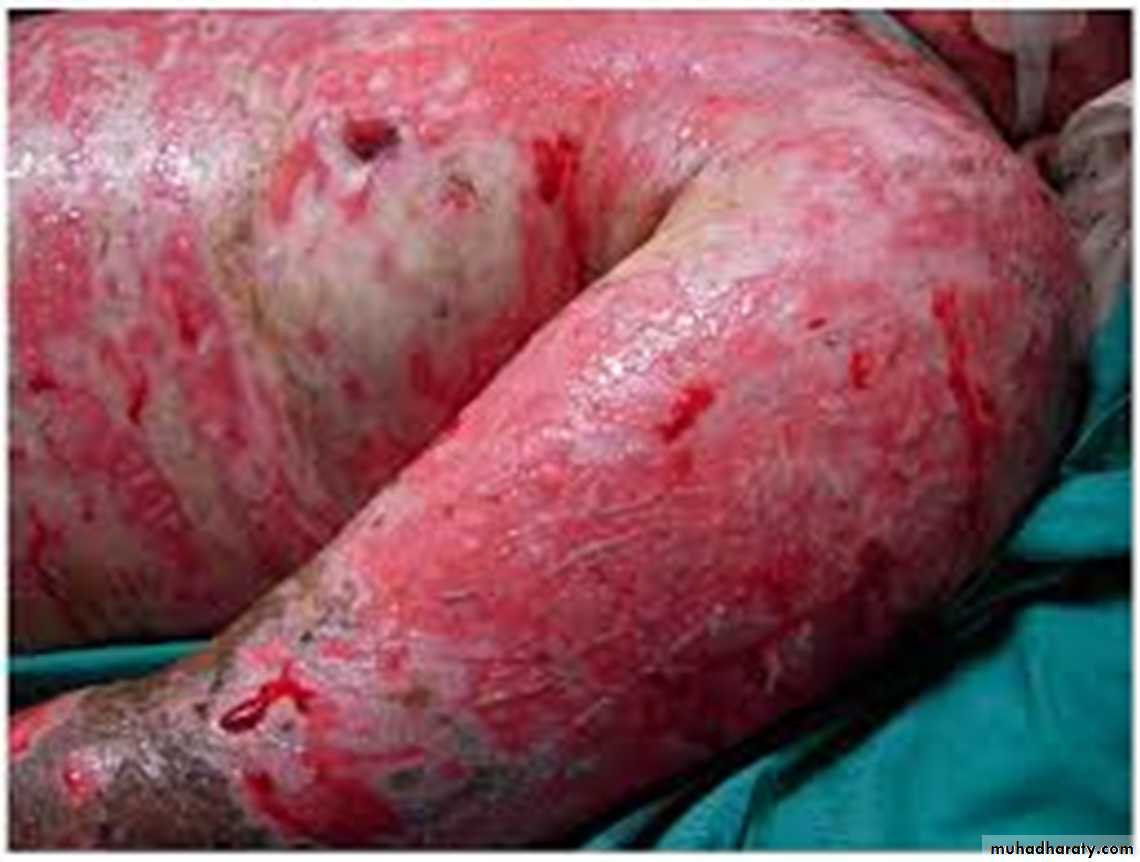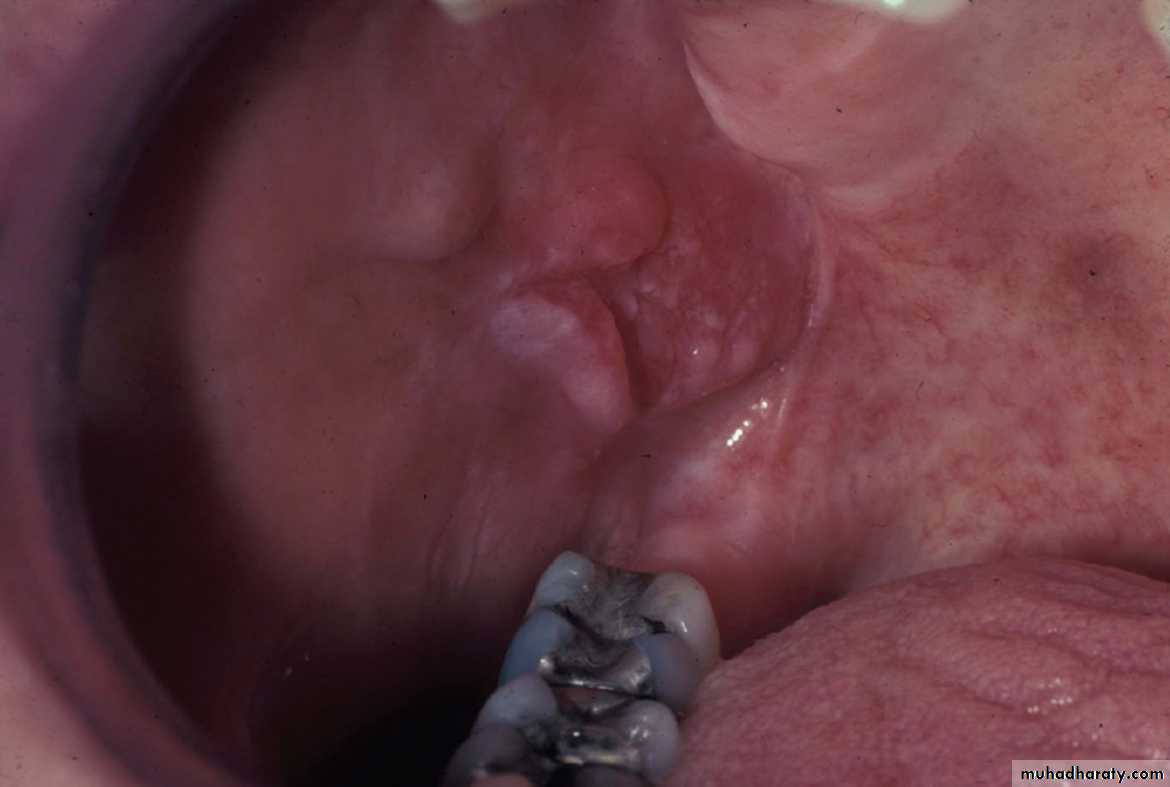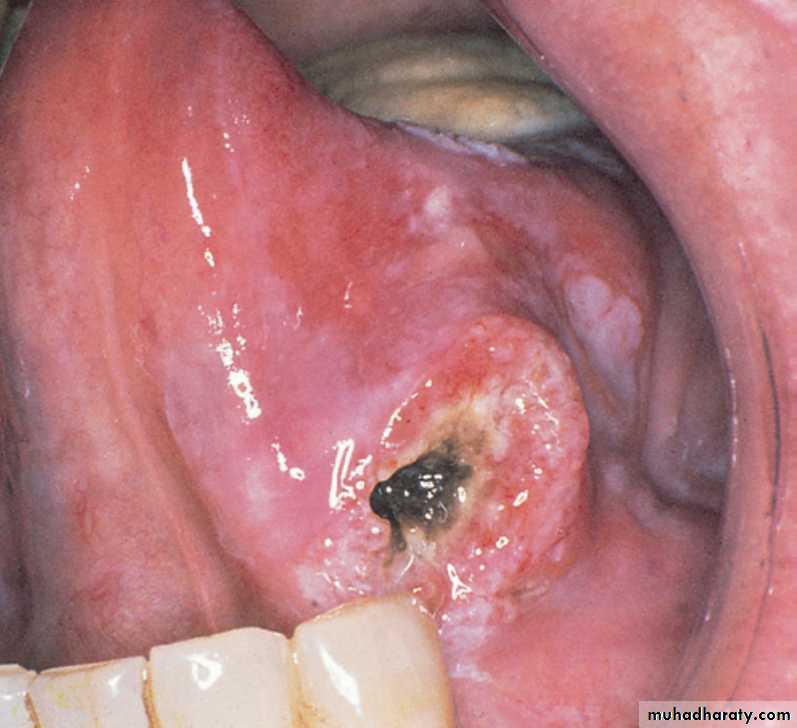Oral Ulceration
By:Dr. Ahmed Salih KhudhurBDS, MSc, PhD Newcastle University/ UK
دكتور احمد صالح خضر
UNIVERSITY OF MOSUL
COLLEGE OF DENTISTRY2020-2021
Department of Oral and Maxillofacial Surgery
Department of:
HERE
Cyclic Neutropenia
• Clinical manifestations:The major signs and symptoms of cyclic neutropenia attributed to infections occurring during neutropenic episodes.
• The most common signs are:1. Fever2. Stomatitis (oral ulceration) and periodontal diseases3. Pharyngitis4. Skin abscessesThe severity of the infections is related to the severity of the neutropenia.
• Oral manifestations: Oral lesions are common in cyclic neutropenia and might be the major clinical manifestation of the disease.
• The two most common oral manifestations are oral ulcers and periodontal diseases.
Cyclic Neutropenia
Aggressive periodontitis in 10-year-old boy with cyclic neutropenia, Note the severe swelling and inflammation of the marginal and papillary gingiva. There is gross migration of teeth caused by a loss of bone support.Panoramic radiograph demonstrating severe bone loss around all permanent teeth that have erupted.
Erythema Multiforme
• Erythema multiforme (EM)In patients presenting to dentists, oral lesions may be the only sign.
EM is one of the few causes of recurrent oral ulceration and also produces blisters.
In general, EM is classified into: EM minor EM major
Other forms of EM known as Stevens–Johnson syndrome (SJS) and Toxic epidermal necrolysis (TEN) (Lyell disease).
Erythema Multiforme
Cutaneous target lesions (Iris, Bulls’ Eye)Erythema Multiforme
Ulceration of the vermilion of the lip with bleeding, swelling and crusting is characteristic.Erythema Multiforme
There is ulceration, erythema, sloughing of epithelium and a small vesicle centrally. The anterior part of the mouth and the lips are typically affected.Erythema Multiforme
Intraoral erythema multiforme with coalescent aphthous-like ulcers and erythema of the buccal mucosa
Erythema Multiforme
Erythema multiforme with target lesions on the skin of the fingers and intraoral ulcers.Stevens-Johnson Syndrome & Toxic Epidermal Necrolysis
•Stevens-Johnson Syndrome
Lips and labial mucosa lesions in a 17-year-old male with Stevens–Johnson syndrome.Toxic Epidermal Necrolysis
•Miscellaneous oral ulcers
Other types of ulcers might present in the oral cavity associated with/or as the main manifestation of local (oral) or systemic diseasesSuch as:
Pemphigus & Mucous Membrane PemphigoidOral cancer
Ulcers associated with: Oral mucositis
Xerostomia & Sjögren’s syndrome
Diabetes Mellitus
Renal failure
Others
Miscellaneous oral ulcers
Non-painful, irregular, indurated exophytic and ulcerated buccal mass histolpathology revealed squamous cell carcinoma.Miscellaneous oral ulcers
Advanced squamous carcinoma.The classical ulcer with a rolled border and central necrosis is a late presentation.
Note the surrounding areas of keratosis and erythema which had been present for many years before the carcinoma developed.
Oral Ulceration
Conclusion:The basic principles for the management of oral ulcers in general: 6 Stars
1.Early diagnosis
2.Relief pain3.Remove cause
4.Isolate the ulcer
5.Reduce inflammation promote healing
6.Cure if Possible
THE END
UNIVERSITY OF MOSUL
COLLEGE OF DENTISTRY2020-2021




